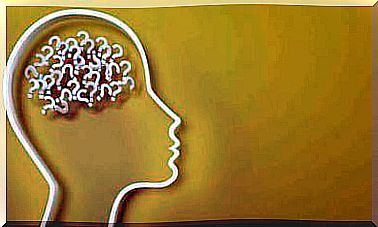Everything Has A Way Out: With A Smile Or A Slam On The Door Without Looking Back

Most of the time we don’t have a life jacket for every wreck, nor a parachute for every leap we take into the void. However, everything has a way out, sometimes with a smile, other times with a strong slam of doors without looking back. Because although we don’t have an ointment to heal every wound or a compass to show us the best way, sooner or later it will happen: we will move on with our heads held high.
This way of thinking may sound like a premise of positive psychology. One of those who defend the motto of “if you want it, you can”, accompanied by a smiling yellow face. But in fact we have to emphasize that this vision is much more than just a meaningless motto. In fact, we can recognize an evolution since Martin Seligman structured his theoretical and scientific bases in the mid-1990s.
The current positive psychology is experiencing a second wave that values a key aspect: the ability to transform ourselves. For this, we have to understand how complex emotional experiences are, where it is not always easy to separate the positive from the negative. To survive, to overcome any adversity, it is necessary to know how to live with this whirlwind of feelings, which are often challenging, but which are also complementary and part of a balance that is effectively self-regulated.

Everything has a way out, but where is it?
Your problem may be solved if you travel by plane: going far away, changing air, places, skin, familiar surroundings. But that might not be it, maybe you need to say out loud what you’ve kept inside for so long. Express yourself clearly and close this phase of your life with a smile or a slamming of doors. However, it may be that you already have what you need and you just need to realize it.
Whatever your personal situation, your black hole or your difficulty, you only need to know one thing. Everything has a way out, as long as you focus on your own “way out” and not the maze of the problem. Because, believe it or not, this is something most of us do. So, when adversity visits us and traps us in its web of unforeseen events and injustices, we often focus only on what hurts, what makes us angry, what threatens… We are face to face with fear, but we never look over the top his.
Every problem has a boundary, and crossing it will allow us to breathe, to get rid of that feeling of suffocation. And then, envision an escape plan. But do we do this? The truth is, we often don’t, and we pay dearly for it over and over again. Because adversity paralyzes and we are not used to dealing with negative emotions. We don’t tolerate them. Positive psychology, in that second wave that we live in today, emphasizes the importance of not depleting our resources by putting them in a capsule. If we can accept negative emotions instead of fighting them, we will move forward.

Lessons on Adversity
In recent years, it’s not just positive psychology that’s making an interesting breakthrough. We increasingly have at our disposal works and articles focused on what is known as post-traumatic growth psychology. This current defends that, although there is a way out for everything, we will not leave this tunnel being the same. Every process implies a change, and every change means losses and incorporations, in short, transformations.
Lessons about adversity tell us that we can lose some of our innocence. From our ability to trust, from our spontaneity from the past… We will let go of certain things in this departure process and we will be wounded, there is no doubt. However, as poet and architect Joan Margarit says, a wound is also a place to live . That’s because an unparalleled creative force emerges from us, we find resources we didn’t know we had, and we also create a more satisfying view of ourselves.

Everything has a way out if we devise an escape plan. Everything has a way out if we are aware that we will no longer be the same: we will be stronger. Understanding this, making these our principles will undoubtedly help us on this journey of life in which we must first understand that no one is alien or immune from adversity. And second, that we all have the potential to put what is known as post-traumatic growth into play.
Martin Seligman himself reminds us of this in his work on 9/11. Something I could see in a lot of the people who had survived the terrorist attack was their resilience. Often the toughest events can act as catalysts for the most positive changes. They give us a humbler look, greater temperance, psychological resilience, acceptance of our own vulnerability, and a more wholesome and valuable philosophy of life.
To conclude, a person’s strength does not lie in his ability to resist certain things. Our strength is in our indomitable will to transform ourselves, to rebuild ourselves again and again.









